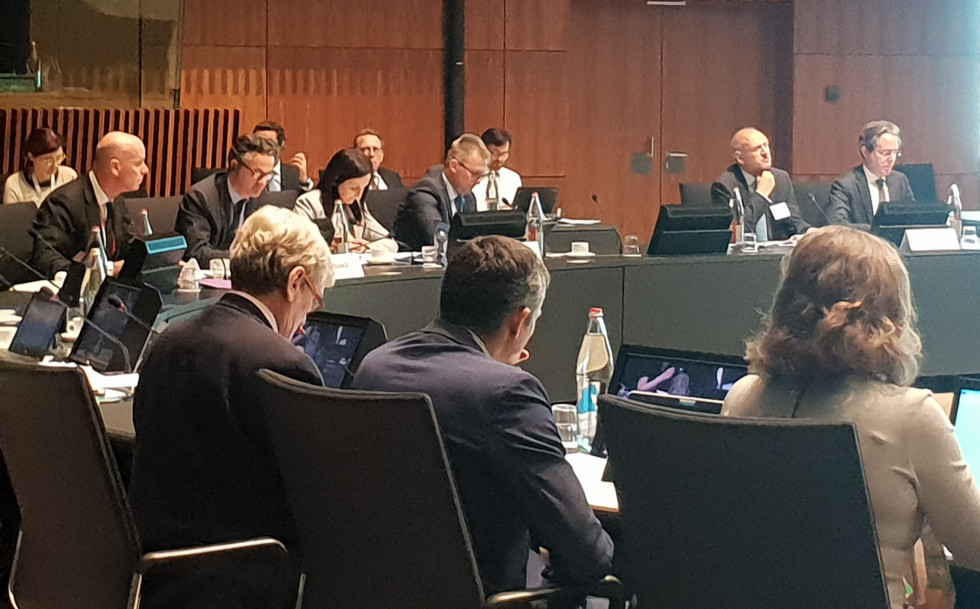State Secretary at the Ministry of Public Administration Leon Behin calls for the reduction of digital divide at the meeting of telecommunications ministers

The discussion on the meeting of the Transport, Telecommunications and Energy Council | Author MJU
The ministers and other high-ranking officials discussed the future of the digital single market. Ministers paid special attention to innovation, digital user skills, and, in particular cyber security. In this context, a European Cybersecurity Competence Centre is expected to be established in 2021 with an important mission: to accelerate the use of breakthrough cybersecurity solutions.
The discussion focused on the development of the post-2020 Digital Single Market Strategy, paying particular attention to the opportunities brought by digital technologies; however, not at the expense of privacy and in the light of increased digital literacy among its users. It was also agreed that the EU should reduce disparities between Member States, as this was the only way to maintain its global competitiveness.
State Secretary Leon Behin spoke in favour of a "European Union that is digitally competitive". He highlighted those policies that will also help the EU to maintain its global competitiveness. He went on to say that "Slovenia is committed to the solutions that contribute to the digital transformation" and called for the EU's greater strategic autonomy in this area. "The digital transformation necessarily entails an ethical aspect," he further underlined, adding that, "only by developing an ethical digital economy can Member States strengthen the competitiveness of both Member States and the EU as a whole". "Slovenia will continue to support all solutions that will contribute to reducing the digital divide not only within the Member States but also between them," Mr Behin further emphasised and concluded the debate by reflecting on the need for a more coordinated approach at the EU level in the areas of cybersecurity and investment in 5G networks.
Mr Behin also attended a working lunch as part of the Council meeting, where ministers discussed the priorities for the digitisation of the European economy, including digital research and innovation. Slovenia has adopted the position that, in terms of digitisation, the European Research Area needs to be strengthened. In practice, we are facing a brain drain of EU experts, which can, over time, progressively erode the competitiveness of the European economy. Slovenia's efforts pursue a greater strategic autonomy of the EU. It is imperative to transfer artificial intelligence research into the economy and to properly motivate EU experts.
On the margins of the meeting, Mr Behin met with German State Secretary Ulrich Nussbaum and Portuguese Minister Pedro Nuno Santos. They discussed in particular the preparations for the presidency of the Council of the EU, with Slovenia holding the presidency in the Trio with Germany and Portugal. The major theme of the Slovenian Presidency will be the 5G revolution.

